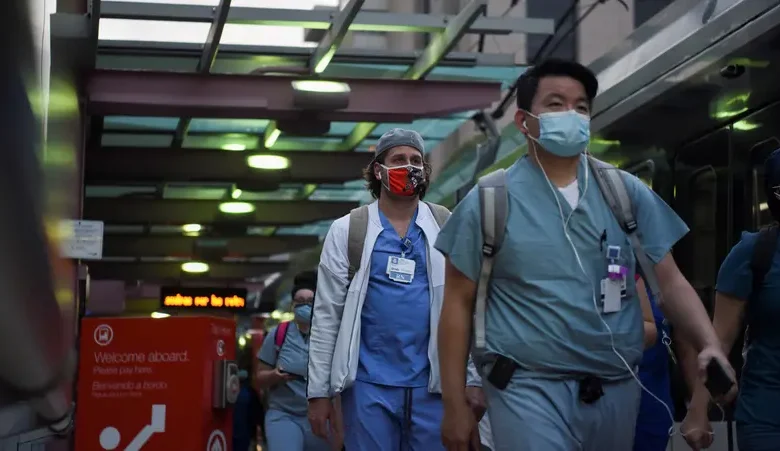COVID’s aftereffects may last for more than three years: Study

COVID’s aftereffects may reverberate for more than three years, often causing lingering pulmonary and gastrointestinal symptoms, according to a large study of US veterans.
Although the risks for heart attack, blood clots, muscle weakness and a slew of other health problems abate over time, many patients remain in worse shape, especially those who’ve been hospitalized, researchers at the Washington University School of Medicine in St. Louis and the Veterans Affairs St. Louis Health Care system said.
“We are used to thinking about infections as acute events with health effects that manifest around the time of infection,” epidemiologist Ziyad al-Aly, the study’s senior author, said in an email. “The data shows that COVID can cause health effects even three years later.”
The risk of death became insignificant after the first year among non-hospitalized COVID patients, but those hospitalized for the infection had a 29 percent higher chance of dying in the third year compared with uninfected people, al-Aly and colleagues found.
The study, published Thursday in the journal Nature Medicine, analyzed the electronic records of more than 135,000 patients in the VA health system who caught SARS-CoV-2 from March through December 2020 and the records of 5.2 million who avoided infection. The researchers compared the groups, including hospitalized and non-hospitalized COVID patients, for risks of developing 80 health problems over the three years after infection.
As many as one in 10 people infected with the coronavirus experience long COVID, US data show. Since the pandemic, lifespans have been shortened by eight months and people are spending seven fewer months in good health, the International Longevity Centre UK said this week.
Viral Reservoir
The nervous system, lungs and airways, and gastrointestinal tract are among organ systems most likely to suffer prolonged effects — possibly as a result of viral persistence, chronic inflammation or immune dysfunction, al-Aly said, adding that the gut may serve as a long-term reservoir for the coronavirus.
While al-Aly’s research hasn’t found any evidence that COVID patients are at increased risk for developing diseases not previously manifest, he said it’s important to continue following the health trajectories of early cases to understand long-term risks. Viruses such as chickenpox-causing varicella-zoster can persist in the body and later cause shingles. In recent years, scientists have shown that Epstein-Barr virus, known as mono or the kissing disease, can lead to multiple sclerosis decades later.
Although study participants were mostly older white men, almost 14,000 women were included in the patient arm and over half a million in the controls. The results, though, don’t represent the long-term health effects of an infection among vaccinated people, those who got antivirals, or patients who caught variants circulating beyond the pandemic’s first year.
Repeated SARS-CoV-2 infections contribute to additional risk of long COVID affecting multiple organ systems, al-Aly’s research has found.
Still, other studies have found that repeated vaccination and infection bolster the body’s immune response to the virus.
Vaccinated people who experience so-called breakthrough infections develop T cells that are better at recognizing and targeting SARS-CoV-2, including the omicron and delta variants, researchers at the La Jolla Institute for Immunology showed in a study this week.
“The virus evolves, but, importantly, so does the immune system,” said immunologist Alessandro Sette, who studies T cells at the La Jolla, California-based institute.










